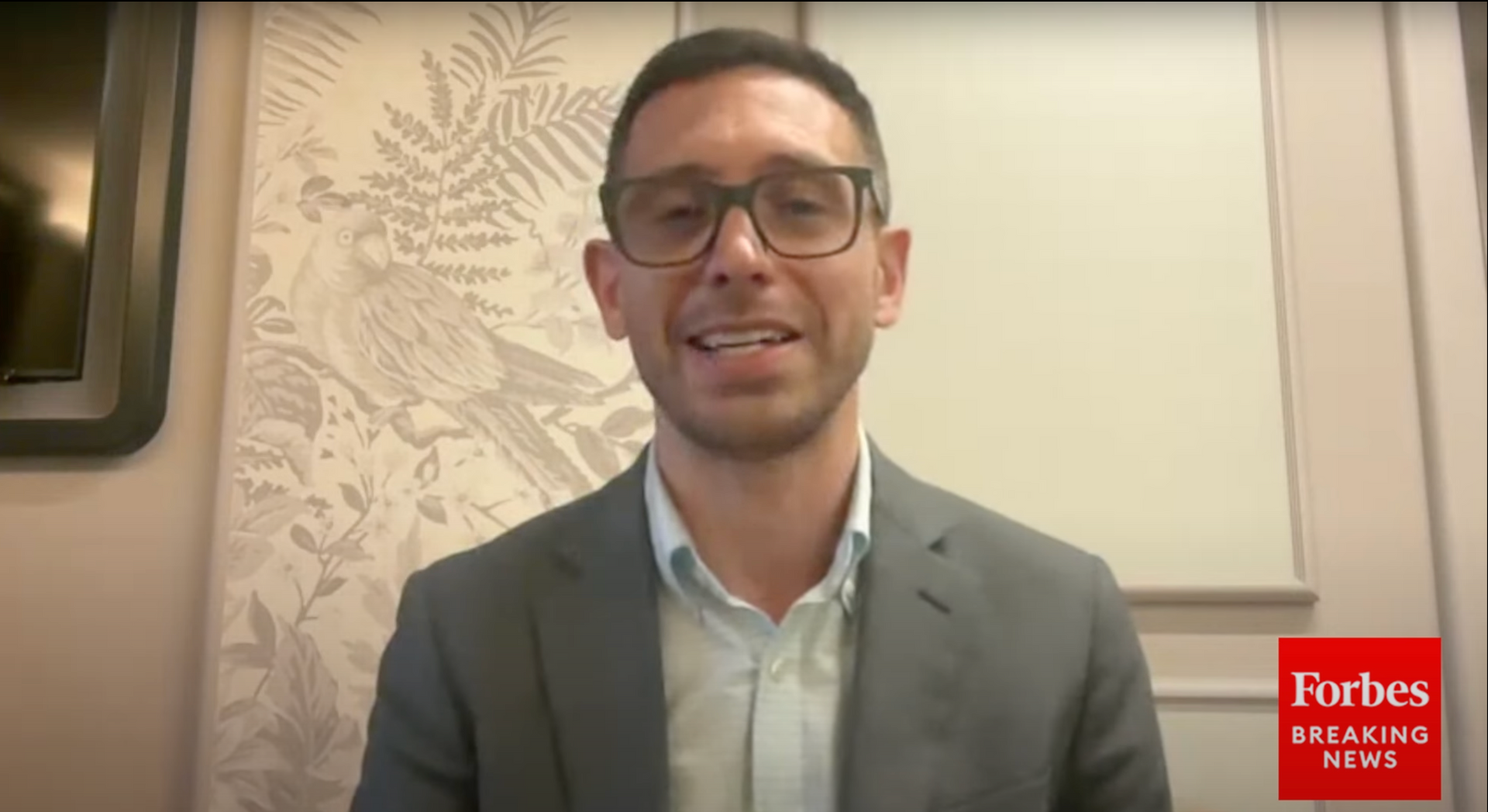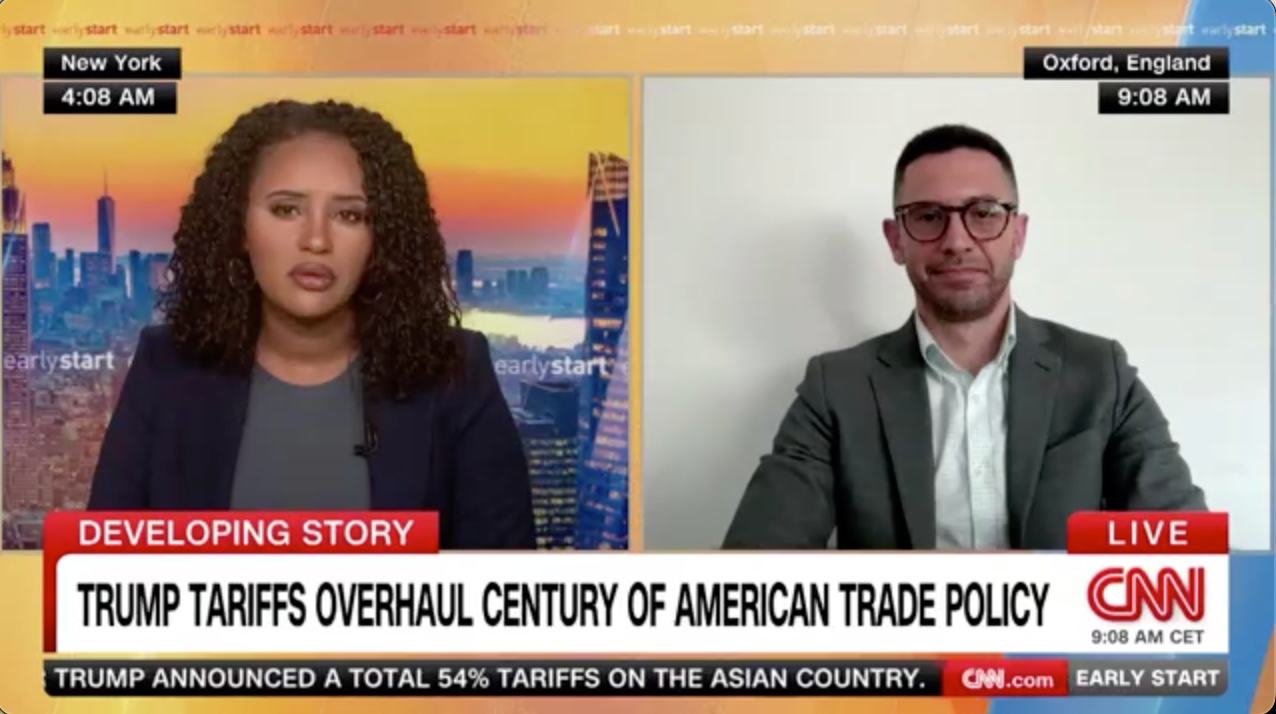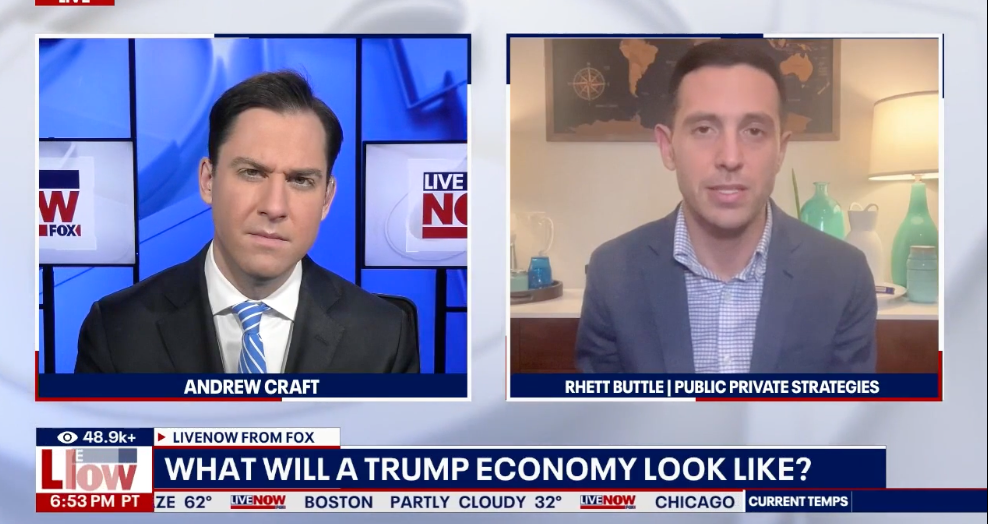Small businesses: Brace yourselves for a caregiving crisis
Rhett Buttle • July 6, 2020
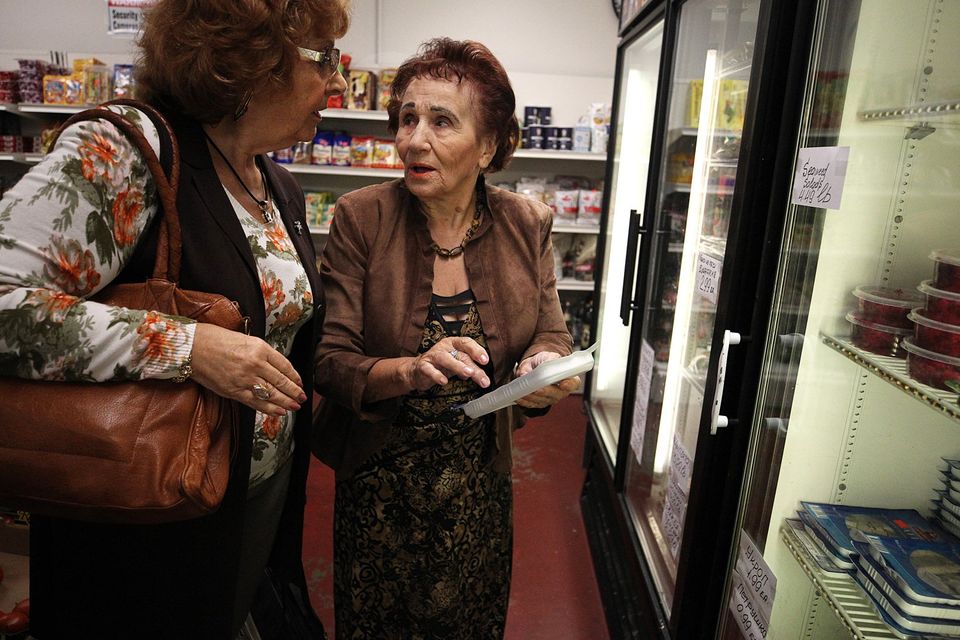
Suzanne Kreiter - The Boston Globe/Getty Images
All 50 states have started reopening from the economic shutdown and the lifting of stay-at-home orders put in place to combat COVID-19. However, as more small businesses reopen their doors, many of them are going to be faced with the challenge of serving an increasing number of employees who need support as they care for loved ones battling illness or requiring extra help to stay safe and healthy.
Before the COVID-19 pandemic, roughly 26.5 million Americans were classified as family caregivers who were juggling work and unpaid care for an adult family member or friend. That number was already projected to grow, but now with a protracted public health battle against the coronavirus it is quickly becoming an inevitable crisis for America’s small-business community. Unaddressed, the loss of productivity owing to caregiving costs U.S. businesses an estimated $17.1 billion to $33 billion annually.
Already, one in six working Americans
is a caregiver for a parent, spouse, partner, or friend with a chronic, disabling, or serious health condition. And demographic trends suggest there will be a greater share of caregivers in the workplace in the years to come. In fact, Census Bureau population projections show adults over the age of 65 will outnumber children under 18 for the first time in U.S. history by 2034, and many of those older adults will need assistance with chronic conditions. With fewer people available to provide care, many family caregivers will be sandwiched between work responsibilities and care responsibilities. That means caregivers in the workplace will be a new norm.
Despite the increasing demands for support, caregivers want to—and oftentimes must—continue working. That is not a surprise, since caregivers stand to lose a lot if they leave their jobs. Those who disrupt their careers or leave the labor force can face substantial economic risk and both short- and long-term financial difficulties. In fact, MetLife found Americans who provide care for their aging parents have lost, in the aggregate, an estimated $3 trillion in wages, pensions, and Social Security benefits over the course of caring for a loved one.
Fortunately, employers are sympathetic to their employees’ situations. A recent AARP study
found that 94% of employers believe supporting caregivers at work is the right thing to do, and many believe it will continue to be an important workplace issue in the next five years.
To tackle this crisis, a new Small Business Caregiving Online Resource Guide, assembled by our respective organizations, offers employers practical solutions with a step-by-step approach to supporting caregivers in the workplace. The guide provides examples of best practices and robust resources, and creates a caregiver-friendly workplace road map. It recommends four steps:
- Gather data: Recognize current workplace gaps by understanding how your employees think about caregiving.
- Build a friendly culture: Create a supportive and inclusive workplace culture around caregiving through open discussions, manager training, and employee education.
- Implement specific strategies: Provide caregivers with the flexibility and managers with the support they need by incorporating benefits and programs into your workplace.
- Connect employees with resources: Help your employees navigate their lives as working caregivers by sharing resources that help them prepare for and provide care.
Employers who adjust to employee caregiving needs are positioned to receive the best from their staff. Employees working for caregiver-friendly
businesses are more engaged, productive, and less likely to leave. Business owners with formal policies also say it is easier for them to accommodate adjustments, such as schedule changes or leave requests.
As small-business owners reopen, developing a caregiving-friendly workplace can no longer be an afterthought. Between changing demographics and a virus that will be with us for the foreseeable future, now is the time to take action and create a small-business community where both businesses and families thrive. The small-business owner who prepares for this emerging crisis today will be better positioned to tap the full potential of their greatest assets—their employees—tomorrow.
This piece originally appeared in Fortune on June 16, 2020. You can view it online here.
Nancy LeaMond is executive vice president and chief advocacy and engagement officer at AARP. Rhett Buttle is the founder of Public Private Strategies, Executive Director of the Small Business Roundtable, Founder of the NextGen Chamber of Commerce, a Senior Fellow at The Aspen Institute, and a contributor for Forbes.
WANTING MORE NEWS? SIGNUP TODAY
Contact Us
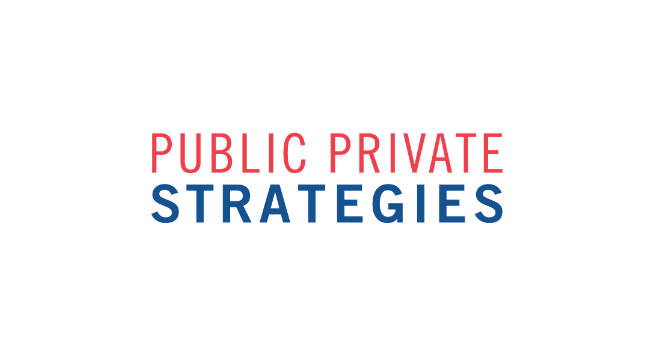
*This article was written by Scripps News Staff. President Joe Biden announced that the government will cover 100% of Hurricane Helene cleanup costs for the next several months to pay for the urgent work to clear the mud, remove downed trees and provide temporary housing. The federal support comes as residents in multiple Southeastern states are still struggling to return to normal following last week’s storm that killed over 200 people. Katie Vlietstra Wonnenberg, a small business advocate and political strategist, said it is going to take a significant amount of time to finish the cleanup, no matter how hard the federal government works. Read the entire piece on Scripps News.

WASHINGTON, D.C. – This month marks the anniversary of two pivotal pieces of legislation that are helping fuel a small business boom, the CHIPS & Science Act and the Inflation Reduction Act. Over the past four years, there has been a historic growth of American entrepreneurship across the country, with over 18 million new business applications filed, each one an act of hope and optimism in our economic future. This small business boom is fueled by investments like the Inflation Reduction Act and the CHIPS & Science Act. Rhett Buttle, Founder and CEO of Public Private Strategies, released the following statement: “As we mark the two-year anniversaries of the CHIPS & Science Act and the Inflation Reduction Act, the positive impact across the business landscape, and particularly for entrepreneurs, is unmistakable. The CHIPS & Science Act is fueling entrepreneurship opportunities by dedicating over $50 million to help develop new ideas and technologies to strengthen domestic semiconductor production and supply chain. “The Inflation Reduction Act has helped lower costs for workers and consumers, driving up demand for small businesses across the country. The healthcare provisions of the Inflation Reduction Act alone are saving millions Americans an average of $800 per year on health insurance premiums. These investments have helped fuel America’s small business boom, including a record 18 million new small business applications filed over the past four years. “We have more work to do to address the issues that business owners have consistently said are their top priorities, from lowering health care and prescription drug costs to expanding and streamlining contracting opportunities for small employers to strengthening and protecting American democracy . We remained committed to working with business leaders to address these challenges and ensure these investments are implemented effectively to grow economies and support communities all across the country.” ### About Rhett Buttle Founder & CEO, Public Private Strategies President, Public Private Strategies Institute Senior Fellow, The Aspen Institute Rhett Buttle is an entrepreneur, advocate, and one of the most trusted leaders at the intersection of business and policy in Washington, DC. He has worked for President Biden, Vice President Harris, President Barack Obama, Secretary of State Hillary Clinton, and Governor Arnold Schwarzenegger in government and campaign roles. Rhett is the founder of Public Private Strategies (PPS) and President of the Public Private Strategies Institute (PPSI), which works to bring together the public and private sectors to build coalitions, activate campaigns, and create strategic partnerships to drive policy and market outcomes. In these roles, he advises leading policy makers, foundations, nonprofits, and corporations. In addition to PPS and PPSI, he has helped found the Small Business Roundtable, Small Business for America’s Future, and the Next Gen Chamber of Commerce. He is also a Senior Fellow at the Aspen Institute and a regular contributor to Forbes, where he writes on the intersection of business, policy, and politics. Rhett has also been featured in The New York Times, CNN, The Wall Street Journal, and several other business publications. About Public Private Strategies Public Private Strategies (PPS) creates opportunities where the public and private sectors meet. We bring together diverse allies including foundations, associations, corporations, small businesses, and entrepreneurs to solve pressing societal challenges. By harnessing the power of the private sector, we build coalitions, activate campaigns, and create strategic partnerships to drive desired policy and market outcomes. Learn more at www.publicprivatestrategies.com .

WASHINGTON, D.C. – This month marks the anniversary of two pivotal pieces of legislation that are helping fuel a small business boom, the CHIPS & Science Act and the Inflation Reduction Act. Over the past four years, there has been a historic growth of American entrepreneurship across the country, with over 18 million new business applications filed, each one an act of hope and optimism in our economic future. This small business boom is fueled by investments like the Inflation Reduction Act and the CHIPS & Science Act. Rhett Buttle, Founder and CEO of Public Private Strategies, released the following statement: “As we mark the two-year anniversaries of the CHIPS & Science Act and the Inflation Reduction Act, the positive impact across the business landscape, and particularly for entrepreneurs, is unmistakable. The CHIPS & Science Act is fueling entrepreneurship opportunities by dedicating over $50 million to help develop new ideas and technologies to strengthen domestic semiconductor production and supply chain. “The Inflation Reduction Act has helped lower costs for workers and consumers, driving up demand for small businesses across the country. The healthcare provisions of the Inflation Reduction Act alone are saving millions Americans an average of $800 per year on health insurance premiums. These investments have helped fuel America’s small business boom, including a record 18 million new small business applications filed over the past four years. “We have more work to do to address the issues that business owners have consistently said are their top priorities, from lowering health care and prescription drug costs to expanding and streamlining contracting opportunities for small employers to strengthening and protecting American democracy . We remained committed to working with business leaders to address these challenges and ensure these investments are implemented effectively to grow economies and support communities all across the country.” ### About Rhett Buttle Founder & CEO, Public Private Strategies President, Public Private Strategies Institute Senior Fellow, The Aspen Institute Rhett Buttle is an entrepreneur, advocate, and one of the most trusted leaders at the intersection of business and policy in Washington, DC. He has worked for President Biden, Vice President Harris, President Barack Obama, Secretary of State Hillary Clinton, and Governor Arnold Schwarzenegger in government and campaign roles. Rhett is the founder of Public Private Strategies (PPS) and President of the Public Private Strategies Institute (PPSI), which works to bring together the public and private sectors to build coalitions, activate campaigns, and create strategic partnerships to drive policy and market outcomes. In these roles, he advises leading policy makers, foundations, nonprofits, and corporations. In addition to PPS and PPSI, he has helped found the Small Business Roundtable, Small Business for America’s Future, and the Next Gen Chamber of Commerce. He is also a Senior Fellow at the Aspen Institute and a regular contributor to Forbes, where he writes on the intersection of business, policy, and politics. Rhett has also been featured in The New York Times, CNN, The Wall Street Journal, and several other business publications. About Public Private Strategies Public Private Strategies (PPS) creates opportunities where the public and private sectors meet. We bring together diverse allies including foundations, associations, corporations, small businesses, and entrepreneurs to solve pressing societal challenges. By harnessing the power of the private sector, we build coalitions, activate campaigns, and create strategic partnerships to drive desired policy and market outcomes. Learn more at www.publicprivatestrategies.com .

